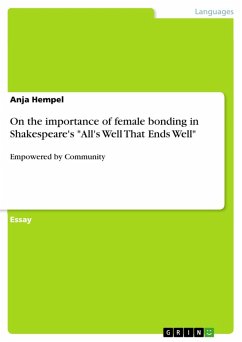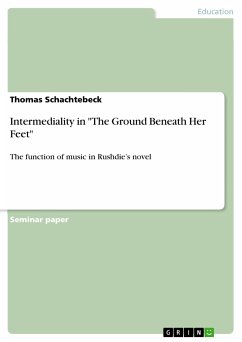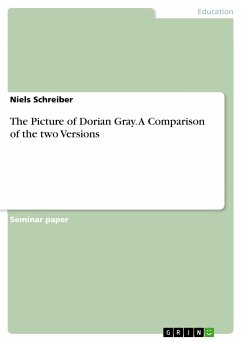Essay from the year 2009 in the subject Didactics for the subject English - Literature, Works, grade: 1,0, Free University of Berlin (Englische Philologie), course: Seminar "Shakespeare and Women", language: English, abstract: In the Renaissance, the ideal of same-sex friendship between men was highly valued (cf. Kaplan 312). William Shakespeare referred to this theme in many of his literary works. In particular, his sonnets dedicated to the “Fair Lord” have provoked debates about the writer’s own sexuality. But the idea of “the other I” presented in the sonnets and included in most of Shakespeare’s plays is not limited to male friendship alone. Shakespearean drama offers many instances of affection or at least solidarity between women as well. “[J]ust as Shakespeare seems to pull free of the strictly classical dramatic forms, so too does he free himself of the purely neo-Platonic expression and uses of friendship” (Longo 8). Feminist criticism perceives the women in Shakespeare’s plays, in particular in the comedies, as powerful and dominant (cf. Berggren 18). Often cross-dressing appears to be the strategy that allows them to break with the traditional female role comprising the in the Renaissance still prevailing “virtues of silence, obedience and chastity” (McFeely 8) . “By obscuring their own sex, the heroines gain extraordinary access to the men they love…” (Berggren 22). But besides male disguise, relationships among women give strength to each other. All in all, nineteen of Shakespeare’s plays include intimate talks between women which take place in private and refer to very personal issues (cf. McKewin 119). In the following, I will analyse the relationships that exist among the women in Shakespeare’s problem play All’s Well That Ends Well. They can be considered particularly important, as due to the complete absence of cross-dressing in the play, they play an exceptional role in empowering the heroine. Helena “breaks out of both the cultural (historical) and psychic (transhistorical) strictures applied to women … by the assertion of desire” (Asp 75). Her determined way of wooing Bertram makes him an object and thus a reversal of traditional roles takes place. The audience experiences All’s Well That Ends Well from a female desiring perspective. That makes the play unique within Shakespeare’s canon (cf. Asp 74) and makes the careful consideration of the background allowing this changed perspective inevitable.








